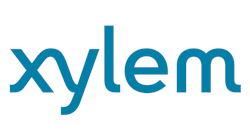Carlos David Mogollón, Managing Editor
Amazon.com recently got a small bundle of cash from me for my summer reading list. Books I plan to read include:
- When the Rivers Run Dry: The Defining Crisis of the 21st Century
- Water For Sale: How Business and the Markets Can Resolve the World’s Water Crisis
- Water Wars: Privatization, Pollution and Profit
- Bottlemania: How Water Went on Sale and Why We Bought It
- Water: The Fate of Our Most Precious Resource
- Blue Covenant: The Global Water Crisis and the Coming Battle for the Right to Water
- Water Follies: Groundwater Pumping and the Fate of America’s Fresh Waters
- Unquenchable, and
- Water for Elephants
Whoops, that last one is my wife’s.
The previous two are by University of Arizona law professor Robert Glennon, who was a keynote speaker along with former U.S. Vice President Al Gore at a Global Water Intelligence event in Zurich in April, “Blue, Green & Gold: The Future of Water, Finance & the Environment.” Unquenchable is Glennon’s latest look at “America’s Water Crisis and What to Do About It.”
Blue Covenant also is new from Maude Barlow, author of 2003’s Blue Gold: The Fight to Stop the Corporate Theft of the World’s Water. She’s quoted throughout the recent documentary “Flow,” which won awards at Sundance and three other international film festivals. I watched it and gave the “three-alarm” scare piece a mixed review due to the jumble of reactionary commentary and valid issues raised by the film. The New York Times called it “an informed and heartfelt examination of the tug of war between public health and private interests.” While it is informative and includes a number of recognized experts including the Pacific Institute’s Peter Gleick, it attempts to galvanize public outrage a la Michael Moore moreso than educate in my opinion. On balance, other recent documentaries, including “Poisoned Waters” by public TV’s Frontline in April, “Troubled the Water and last year’s “Liquid Assets: The Story of Our Water Infrastructure” by Penn State Public Broadcasting, do a much better job of informing the public than this effort.
What’s missing from the debate often is the fact technology to solve problems regarding our water needs have to come from somewhere and someone must pay for their development. Those companies that do are due a fair return for that investment in a culture where government and elected officials – pressured by a “no new taxes” environment and tight economic budgets – have until recently been reluctant to foot the bill. This is the tack of Water For Sale, published by the Cato Institute in 2005. That isn’t to say some arguments by the “right to water” folks don’t have merit, though. I’m not necessarily one that believes the public should have to pay full market or “full cost pricing” directly as water’s provision is a basic government service and a regulated monopoly and, thus, should be offset by government investment as well (see quote). Oh, and just to confuse matters, I don’t want to pay too much in taxes – just my fair share.
As for the documentaries, better balance is all I ask for. “Trouble the Water,” the documentary on New Orleans and Hurricane Katrina, is next on my Netflix list.
As for my book list, you can likely tell I like a little controversy when reading. It helps me avoid the summer siesta, another tradition here in the U.S. Southwest.
On another note, “Buy American” provisions in the American Recovery & Reinvestment Act of 2009, i.e., the economic stimulus package passed by Congress, continues to raise industry hackles even after federal guidance by the EPA on waiving options for Clean Water State Revolving Fund and Drinking Water SRF assistance recipients was issued April 28. The confusion is over what percentage of components or U.S. assembly constitutes an “American” product in today’s global economy and worries over overseas backlashes. The net result is delays in project implementation, watering down – pardon the pun – the net benefit to the economy. The Water & Wastewater Equipment Manufacturers Association has been all over the issue and additional information can be found on ours as well is its website: www.wwema.org

